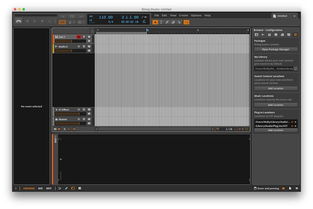
Best Drill Bit for Tile: A Comprehensive Guide
Drilling into tiles can be a challenging task, especially if you’re not using the right tool. The right drill bit can make all the difference between a smooth, clean hole and a mess. In this guide, we’ll explore the best drill bits for tile, considering various factors such as material, type, and features. Whether you’re a DIY enthusiast or a professional, this guide will help you make an informed decision.
Understanding Tile Materials

Before diving into the best drill bits, it’s essential to understand the different types of tile materials. The most common types include ceramic, porcelain, stone, and glass. Each material requires a specific type of drill bit to ensure a clean and precise hole.
| Tile Material | Best Drill Bit Type |
|---|---|
| Ceramic | High-speed steel (HSS) or carbide-tipped |
| Porcelain | High-speed steel (HSS) or carbide-tipped |
| Stone | Carbide-tipped or diamond-tipped |
| Glass | High-speed steel (HSS) or carbide-tipped |
As you can see from the table, ceramic and porcelain tiles can be drilled with high-speed steel (HSS) or carbide-tipped drill bits. Stone and glass tiles, on the other hand, require carbide-tipped or diamond-tipped drill bits due to their hardness.
Types of Drill Bits for Tile

Now that we’ve covered the tile materials, let’s explore the different types of drill bits available for tile drilling.
High-Speed Steel (HSS) Drill Bits
High-speed steel (HSS) drill bits are the most common and affordable option for drilling into tiles. They are suitable for ceramic, porcelain, and glass tiles. HSS bits are made from a high-temperature alloy, which allows them to maintain their sharpness at high speeds.
Carbide-Tipped Drill Bits
Carbide-tipped drill bits are ideal for drilling into harder materials like stone and glass. They are more durable than HSS bits and can withstand higher temperatures. Carbide-tipped bits are also more expensive, but they offer better performance and longevity.
Diamond-Tipped Drill Bits
Diamond-tipped drill bits are the most expensive option but offer the best performance for drilling into stone and glass tiles. They are made from a synthetic diamond material, which is the hardest substance on Earth. Diamond-tipped bits are ideal for creating precise, clean holes in hard materials.
Features to Consider

When choosing a drill bit for tile, there are several features to consider to ensure optimal performance and longevity.
Shank Type
The shank type of the drill bit is crucial for compatibility with your drill. The most common shank types are straight shank, hex shank, and chuck key shank. Make sure to choose a drill bit with a shank type that matches your drill’s requirements.
Point Type
The point type of the drill bit determines how the bit engages with the tile. A sharp point is ideal for ceramic and porcelain tiles, while a rounded point is better for stone and glass tiles. The point type also affects the direction of the hole, so choose the one that suits your needs.
Flute Design
The flute design of the drill bit affects chip removal and cooling. A good flute design ensures efficient chip removal and reduces the risk of overheating. Look for a drill bit with a well-designed flute to ensure smooth drilling.
Coating
Some drill bits come with a coating that improves their performance and longevity. For example, titanium nitride coatings reduce friction and heat, while cobalt coatings increase durability. Consider a coated drill bit if you want to extend the life of your tool.
Top Picks for the Best Drill Bit for Tile
Based on the factors discussed above, here are some top picks for the best drill bit for tile:
- DeWalt






